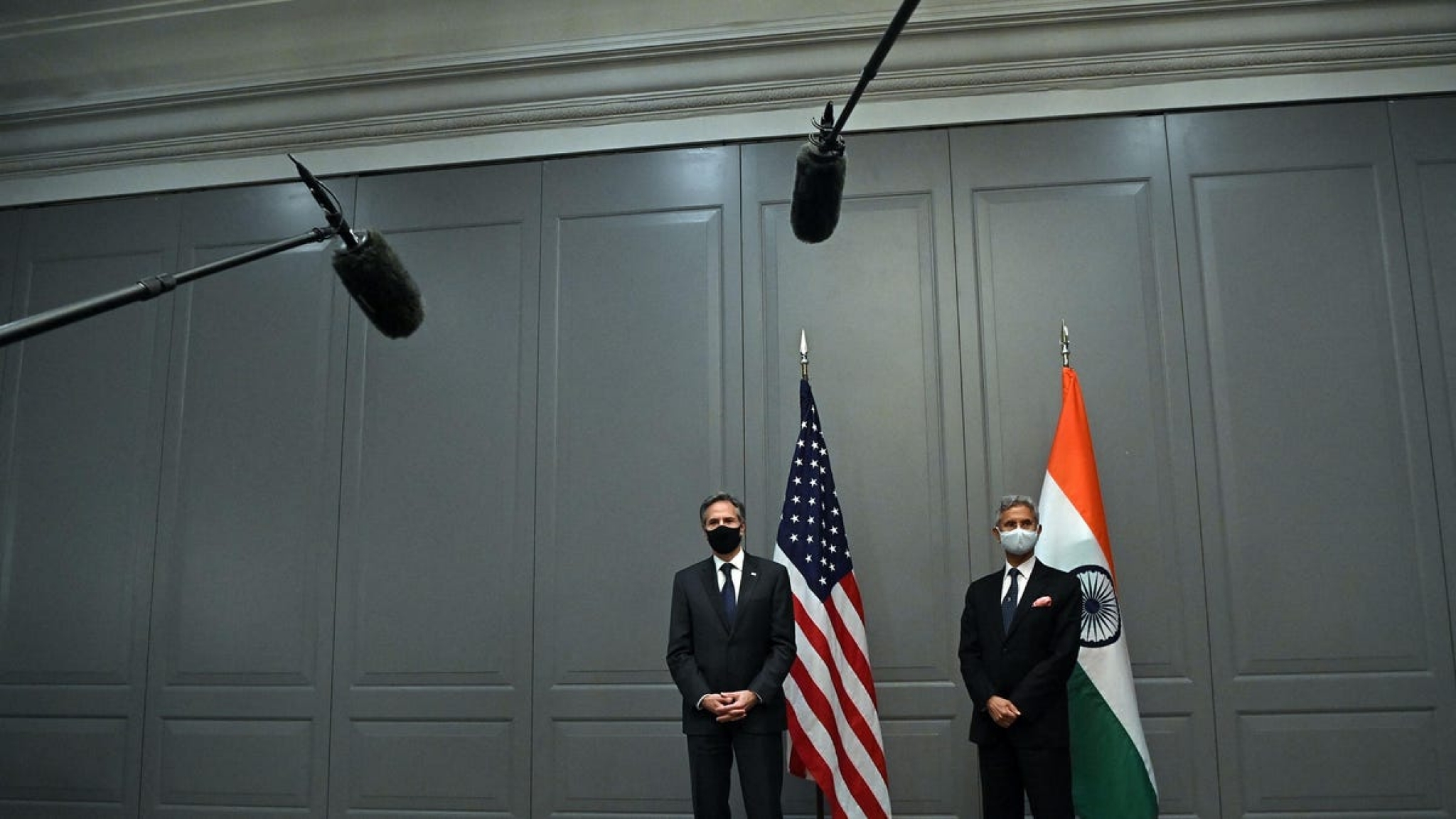G7 Participants Test Positive for Covid-19 at Meeting That Should’ve Been a Zoom Call
India’s G7 delegation is self-isolating in London on Wednesday after two members tested positive for covid-19, according to the British government and a new report from Reuters. The positive cases are likely to spark the obvious question: Why wasn’t this meeting a Zoom call?
“Two delegates tested positive so the entire delegation is now self isolating,” an unnamed British official told Reuters on Wednesday, adding a half-hearted defense of the meeting’s covid-19 protections.
“The meeting had been enabled by a strict set of covid protocols, including daily testing of all delegates,” the unnamed British official said.
India’s top official in London right now, Foreign Minister Dr. Subrahmanyam Jaishankar, who met with U.S. Secretary of State Antony Blinken on Monday, has reportedly not tested positive for the virus. But Jaishankar tweeted on Wednesday that he will be attending the rest of his G7 meetings virtually.
The delegation from India were reportedly given “diplomatic exemptions” to the UK’s covid-19 quarantine rules for anyone entering the country, according to Sky News reporter Joe Pike.
G/O Media may get a commission
Prime Minister Narendra Modi, who’s faced criticism for his absolutely horseshit handling of the covid-19 pandemic, is not in London because this week’s G7 meetings do not include top world leaders.
The G7 includes the U.S., Canada, France, Germany, Italy, Japan, and the UK, and while India is not officially part of the G7 roster, the country’s Foreign Minister is in the UK this week for wide-ranging discussions, including how democratic countries will counter China’s influence in the world. Other non-G7 delegations meeting in London this week includes officials from Australia, South Korea, and the Association of Southeast Asian Nations.
India is the world’s worst hit country of the pandemic right now, with hundreds of thousands of new cases each day. The country reported over 382,000 new cases on Wednesday alone and 3,780 new deaths, both numbers that are believed to be a drastic undercount of the actual problem. Officially, India has identified over 20 million cases of covid since the pandemic began last year.
It’s not clear what kind of contact the two positive cases in London have had with other delegates this week, but contact tracers are almost certainly working on that now.
Many aspects of society are thankfully returning to normal in places like the UK and U.S., where vaccination rates are some of the highest in the world. But poorer countries like India have struggled with vaccine supplies. And these positive cases perfectly demonstrate a sad reality of the pandemic: This global health crisis isn’t really over until a majority of the world has been vaccinated.
While wealthy countries are doing well, India needs a lot of help right now. The only question is whether rich countries will step up in truly positive ways. The best way to start? Waive intellectual property protections for the covid vaccines and let countries like India produce as many as their factories will allow. President Joe Biden made it sound like a no-brainer back in 2020 when he was a candidate, saying it was the “only humane thing in the world to do.” But sadly Biden has been silent on the issue since becoming president.
Step up, Joe. Keep your word. Because you were absolutely right in 2020. It’s the only humane thing to do. And we’re all really sick of the Zoom meetings.

